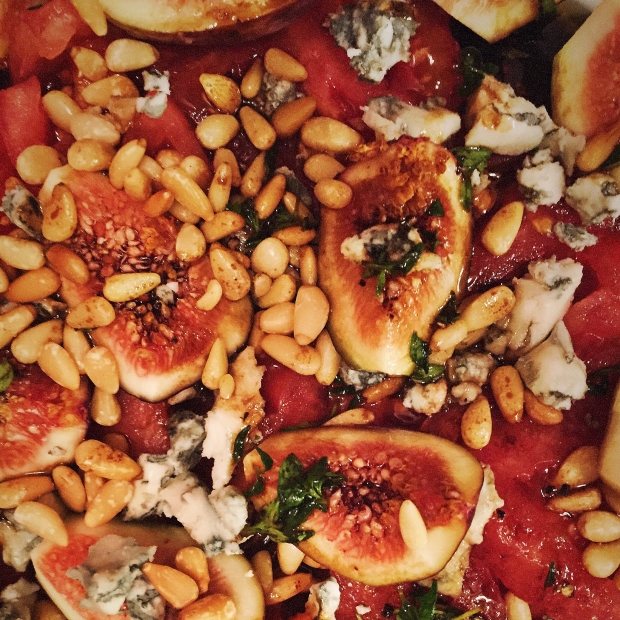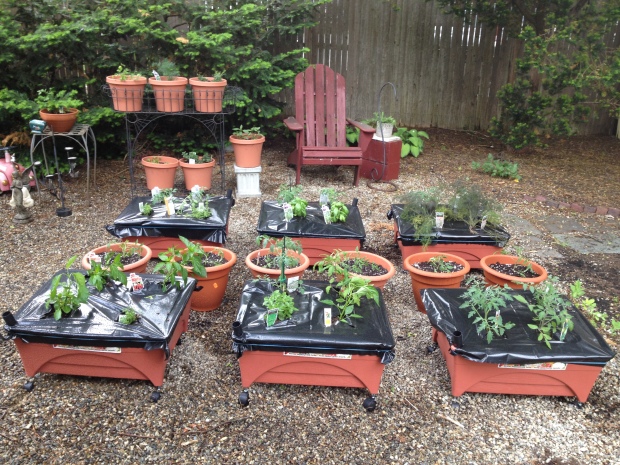I have to admit that I when I heard about this recipe I wasn’t completely sure that figs and tomatoes would make a good match. Usually when I make a salad with figs, it’s on a bed of greens and a very light, fruity vinaigrette. But hey, it’s tomato and fig season, and so an experiment was in order. We’ve had a disappointing year as far as tomatoes go in the garden—some kind of blight has taken all but the smallest cherry tomatoes—so we had to buy the tomatoes for this salad, which also made me doubtful, since I’ve gotten used to strolling out the back door to pick them warm when it’s time to make something.
For this salad, we went the extra step and peeled the tomatoes—probably not strictly necessary, but a nice touch. And we used two kinds of blue cheese—a classic French Roquefort and a local blue. If you’re not a fan of blue cheeses, any tangy, crumbly cheese will do. As in usual in our dishes, we aren’t strict about measurements—we were feeding four people, so we cut up what looked like enough tomatoes and figs for four.
The ingredients list went something like this:
Salad:
4 medium ripe tomatoes, peeled and sliced
8 figs fresh figs, tips cut off, quartered
2 varieties blue cheese, crumbled
Handful of toasted pine nuts, cooled
Dressing:
1 tablespoon balsamic vinegar
¼ cup extra-virgin olive oi
Pinch salt, freshly ground pepper
A few sprigs of fresh thyme, leaves only, whisked into the dressing at the last minute
And that’s it. Assemble it on a platter in layers, starting with the tomatoes, then the figs, then adding the crumbled cheeses and pine nuts. Drizzle the dressing over all just before serving.
I was wrong to doubt the tomato/fig combination. We licked our plates. Our tomato sadness evaporated. It tasted just the way summer is supposed to taste.




